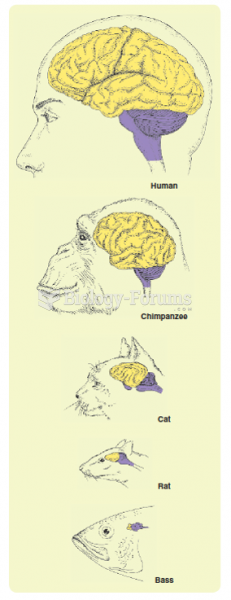|
|
|
It is difficult to obtain enough calcium without consuming milk or other dairy foods.
Most childhood vaccines are 90–99% effective in preventing disease. Side effects are rarely serious.
Thyroid conditions cause a higher risk of fibromyalgia and chronic fatigue syndrome.
The first successful kidney transplant was performed in 1954 and occurred in Boston. A kidney from an identical twin was transplanted into his dying brother's body and was not rejected because it did not appear foreign to his body.
The use of salicylates dates back 2,500 years to Hippocrates's recommendation of willow bark (from which a salicylate is derived) as an aid to the pains of childbirth. However, overdosage of salicylates can harm body fluids, electrolytes, the CNS, the GI tract, the ears, the lungs, the blood, the liver, and the kidneys and cause coma or death.







